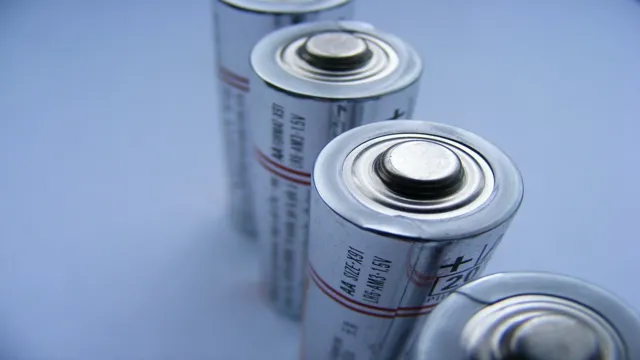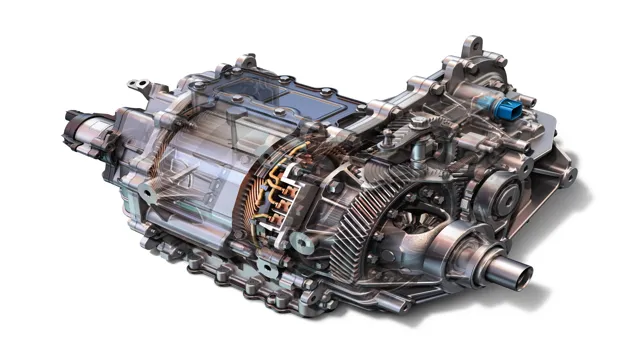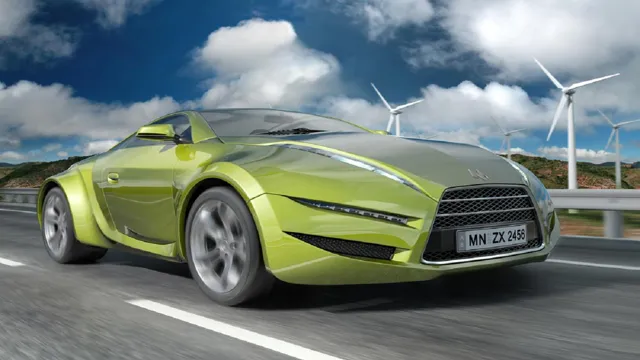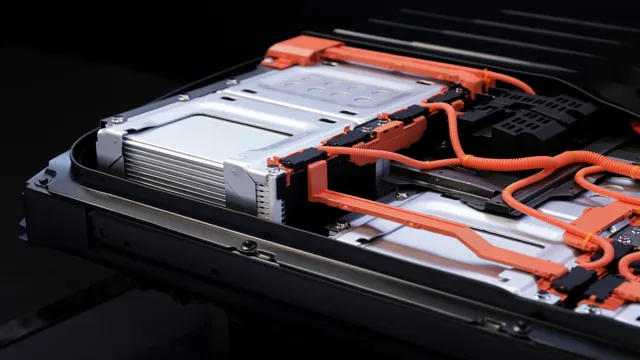Revolutionizing the Road: The Future of Battery Technology in Electric Cars
Electric cars have the potential to revolutionize how we power vehicles and reduce our carbon footprint, but one of the biggest challenges has been developing a battery that provides the necessary range and durability for everyday use. Fortunately, advances in battery technology are bringing us closer to a future where electric cars are not just a niche curiosity, but a viable alternative to traditional gasoline-powered vehicles. Batteries are a fundamental component of electric cars, but the technology has been limited by their size, weight, and storage capacity.
However, researchers and engineers are tackling these obstacles head on, making significant breakthroughs that promise to redefine the capabilities of battery technology. From solid-state batteries to advanced lithium-ion batteries, these new innovations are making electric cars a more practical choice for drivers. One of the most exciting developments in battery technology is the use of solid-state batteries.
Unlike traditional lithium-ion batteries, solid-state batteries use solid electrolytes, which offer higher energy densities, faster charging times, and longer lifetimes. Additionally, they are less susceptible to overheating and fire risks, making them much safer for use in electric vehicles. As power storage capacity improves, the overall reach of electric vehicles is also improving, leading to a more sustainable and eco-friendly future.
Join us as we explore the future of electric car batteries and how they are revolutionizing the entire industry.
The Current State of Electric Car Batteries
When it comes to battery technology for electric cars, the future looks bright. While current electric cars are already capable of impressive range and performance, researchers and manufacturers are working tirelessly to develop even better battery solutions. One promising area of advancement is the development of solid-state batteries.
These batteries use a solid electrolyte instead of a liquid one, which can lead to improved energy density, faster charging times, and increased safety. Other research efforts are exploring the use of alternative materials, such as lithium-sulfur or sodium-ion, which could provide even greater energy storage capacity. Overall, the future of electric car batteries is exciting, and as technology continues to advance, we can expect even better performance, range, and efficiency.
Capacity and Range Limitations
When we talk about electric cars, one of the most common concerns is the range and battery capacity. Thankfully, the current state of electric car batteries is improving, but there are still some limitations. For example, most electric cars can only go around 100-300 miles on a single charge, which is significantly less than traditional gasoline-powered cars.
Additionally, charging times can be longer than refilling a gas tank, with some models taking several hours to fully charge. However, advancements in battery technology are constantly being made, and newer models are starting to have longer ranges and quicker charging times. The keyword here is “electric car batteries” and it’s important to note that while there are limitations now, the future is looking bright for electric cars and their batteries.

Charging Time and Infrastructure
When it comes to charging time and infrastructure, the current state of electric car batteries is one of both progress and limitation. On the one hand, improvements in battery technology have led to longer ranges and faster charging times than ever before. However, infrastructure remains a major concern for many potential electric vehicle (EV) buyers, with many areas still lacking sufficient charging stations.
It’s a bit like having a smartphone with a great battery, but no way to charge it while on the go. While the technology is certainly getting better, it will take time for the infrastructure to catch up, and in the meantime, EV owners will need to plan their routes carefully to avoid getting stranded. Nonetheless, as more and more people make the switch to electric vehicles, we can expect to see continued growth in infrastructure and improvements in battery tech, helping to make owning an EV more accessible and convenient than ever before.
What’s on the Horizon for Battery Tech?
What’s next for electric cars? The future of battery technology looks promising, with new innovations in the works that could make electric cars even more efficient and affordable. One area of focus is solid-state batteries, which use a solid electrolyte instead of a liquid one, resulting in a more stable and energy-dense battery. In addition, graphene-based batteries are being developed, which could offer faster charging times and longer lifespans than traditional lithium-ion batteries.
Other advancements include battery recycling tech, which could reduce the environmental impact of manufacturing and disposing of batteries. As electric cars continue to gain popularity, the race to develop more advanced and sustainable battery technology is sure to heat up, with exciting possibilities on the horizon.
Solid-State Batteries
Solid-State Batteries As technology continues to advance at a rapid pace, one of the biggest areas of focus for researchers is battery technology. With the demand for energy storage increasing each year, scientists are on the hunt for a more efficient and sustainable solution. This is where solid-state batteries come into play.
Solid-state batteries utilize a solid electrolyte instead of a liquid one, which reduces the risk of fires and explosions that are often associated with traditional batteries. Not only are these batteries safer, but they also have the potential for higher energy density, longer lifetimes, and faster charging rates. While solid-state batteries are still in the early stages of development, they hold great promise for the future of energy storage.
With continued research and investment, it’s possible that solid-state batteries will become the norm in the not-too-distant future, leading to a more sustainable and energy-efficient world.
Graphene Batteries
Battery tech is constantly evolving and developing, with new innovations being announced all the time. One development that has the potential to revolutionize the industry is graphene batteries. Graphene is a highly conductive substance that is incredibly strong and light, and it has been shown to be an excellent material for efficient battery production.
Graphene batteries have the potential to offer significantly longer lifespans, faster charging times, and better energy storage capacity than current lithium-ion batteries. This means that they could be used in a wide range of applications, from electric vehicles to portable electronics. While graphene batteries are still in the experimental stages, they hold tremendous promise for the future of battery technology.
Lithium-Sulfur Batteries
lithium-sulfur batteries When it comes to battery technology, there are exciting things happening on the horizon. One development that has caught the attention of many experts is the use of lithium-sulfur batteries. These batteries have the potential to store much more energy than traditional lithium-ion batteries, making them a promising option for everything from electric cars to laptops.
The way they work is by using sulfur as the cathode and lithium as the anode. This combination results in a much higher energy density, allowing for longer-lasting and more efficient batteries. However, there are still some challenges that need to be overcome before lithium-sulfur batteries can become a viable option.
For example, they currently have a shorter lifespan and are less stable than lithium-ion batteries. But as research and development continue, we may see significant improvements in lithium-sulfur batteries, making them a contender for the next generation of energy storage.
Impacts of Improved Battery Tech
The future battery technology for electric cars is expected to bring about significant impacts on the automotive industry and the environment as a whole. With the rise of electric vehicles, the need for more efficient and reliable energy storage solutions has become crucial. Improved battery technology will not only increase the range of electric cars but also reduce the time required for recharging them.
This technology will also minimize the environmental impact of electric vehicles by reducing the mining of rare earth minerals. Furthermore, the use of sustainable materials in the manufacturing of these batteries will make them recyclable, and their disposal will have a lesser impact on the environment. The adoption of future battery technology for electric cars will significantly reduce our carbon footprint, leading to a cleaner and greener world.
Increased Range and Performance
Improved battery technology has revolutionized the world of electric vehicles, leading to increased range and performance. With better battery chemistry and increased energy density, it is now possible to travel significantly further on a single charge. This has eliminated the anxiety that previously came with driving electric cars, as range anxiety and the need for frequent recharging is no longer an issue.
Moreover, with higher power outputs, electric cars can now compete with gasoline-powered cars in terms of acceleration and top speed. As battery technology continues to advance, we can expect to see even more impressive improvements in performance and range, making electric vehicles a more practical and viable choice for consumers. This is great news for the environment, as it means more and more people can make the switch to clean, emission-free transportation.
Decreased Cost and Widespread Adoption
Improved battery technology has the potential to have a significant impact on reducing the cost of energy globally while promoting widespread adoption of renewable energy sources. Traditional energy sources like coal and natural gas remain cheap and continue to make up a significant portion of our energy mix. However, renewable energy sources like solar and wind energy are becoming more affordable and accessible.
With improved battery technology, energy storage becomes more feasible, enabling homes and businesses to store excess power at a reduced cost and through more efficient means. As a result, decreased energy costs and widespread adoption of renewable energy sources become more of a reality. Moreover, the improved battery technology can also lead to innovations in electric vehicles, which will lead to reduced dependence on non-renewable energy sources like oil and gasoline.
As we advance in battery technology, the implication in reducing the carbon footprint and mitigating climate change becomes more significant.
The Future is Bright for Electric Cars
The future of battery technology for electric cars is looking bright, with significant advancements being made in recent years. Battery technology has always been the biggest hurdle for electric cars, limiting their range and efficiency. But, with the development of advanced materials and new manufacturing techniques, batteries have become more powerful and can hold a charge longer.
This means that we could soon see electric cars with ranges beyond 500 miles on a single charge, making them competitive with traditional gasoline cars. Additionally, these new batteries can charge faster than ever before, with some models achieving 80% charge in just 20 minutes. These improvements in battery technology will not only make electric cars more practical but also more affordable, as the batteries make up a significant portion of the overall cost.
With the increasing demand for electric cars and advancements in battery technology, the future of transportation is looking greener than ever before.
Conclusion
In the future, battery technology for electric cars will undoubtedly continue to evolve and improve. From longer range to faster charging times, the possibilities are endless. With the driving force of innovation behind it, we can trust that the future of electric cars will be bright, sustainable, and full of energy.
So let’s buckle up, charge our batteries, and get ready to ride towards a greener and better tomorrow!”
FAQs
What is the current state of battery technology in electric cars?
The current battery technology in electric cars primarily uses lithium-ion batteries, which have shown to have a limited range.
How do advancements in battery technology affect the adoption of electric cars?
Advancements in battery technology can lead to longer driving ranges, shorter charging times, and lower costs, which can increase the adoption of electric cars.
What are some of the new battery technologies being developed for electric cars?
Some of the new battery technologies being developed for electric cars include solid-state batteries, which can have higher energy densities, and flow batteries, which can provide longer driving ranges.
How long does it currently take to charge an electric car?
The time it takes to charge an electric car depends on the battery capacity and the charging station used. With a level 2 charger, it can take 4-8 hours, while with a DC fast charger, it can take 30 minutes to an hour.






